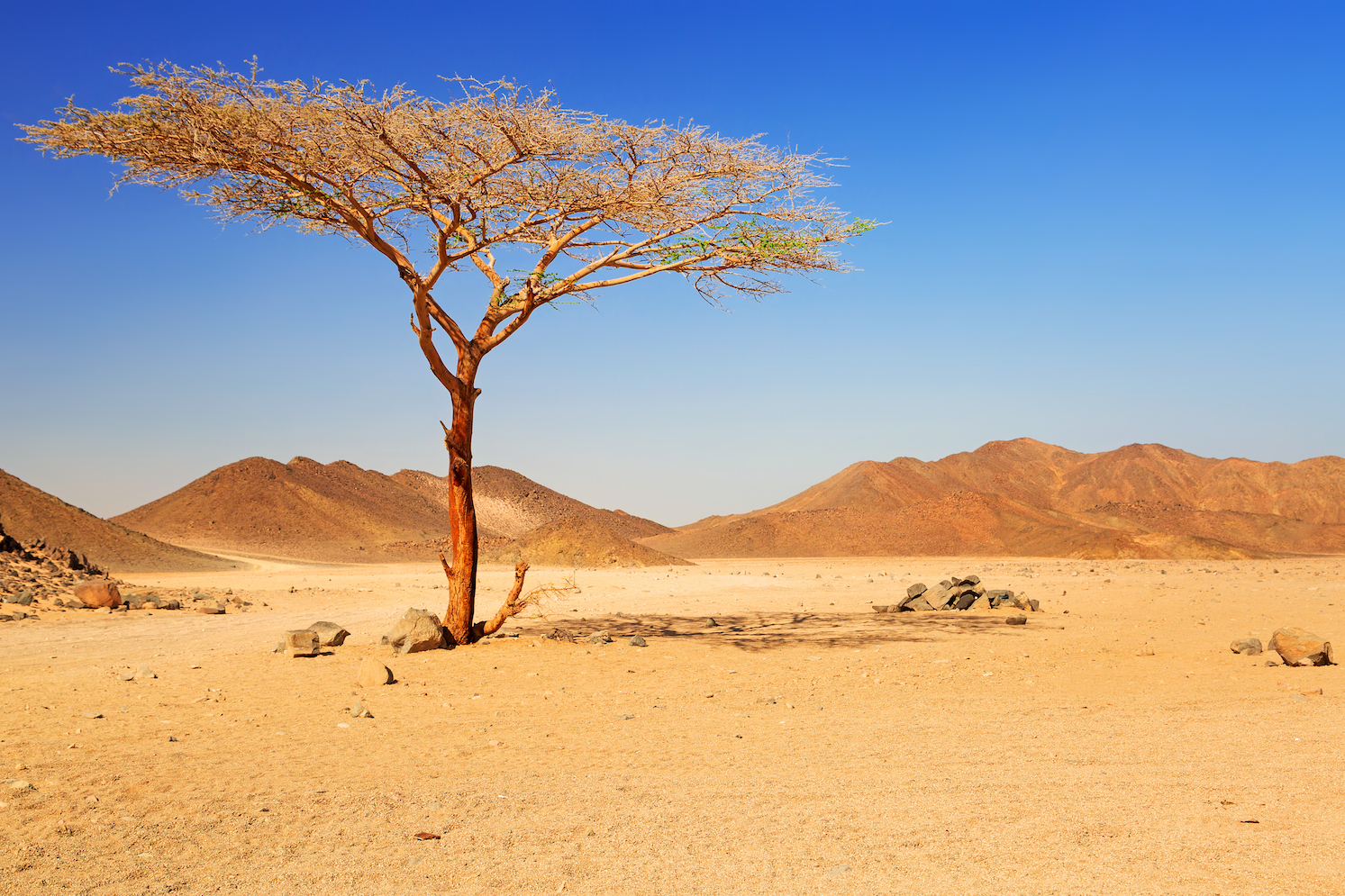
Africa used to be wet and humid until the Arctic changed everything
Today, the African Sahara is known as one of the driest places on Earth. But thousands of years ago, northern Africa experienced a wet and humid period, and was covered with expansive vegetation, animals, and even several large lakes.
Proof of these conditions can be found in stone-age cave paintings that were discovered in Egypt depicting people swimming.
But for years, scientists have struggled to understand how exactly Africa’s humid period ended, and how the Saharan landscape become the arid desert we know today.
Now, new research sheds light on the climate processes that ended the humid period in Africa, showing that northern high-latitude cooling was a catalyst for drying out the region.
A team of researchers from Europe discovered that cooling in the Arctic and mid-latitudes in the Northern Hemisphere decreased wind speeds over Africa. This, in turn, decreased precipitation and paved the way for a drier landscape.
Their findings were published in the journal Nature Communications.
“This cooling reduced precipitation over Africa, and in combination with a range of other complex climate feedback mechanisms tipped the humid system towards aridification,” said James Collins, the first author of the study.
The researchers analyzed ancient plant leaf wax from the Gulf of New Guinea, which is created as a protective measure for the plant’s leaves. Leaf wax can be used to determine what precipitation was like when the plant was alive.
The leaf wax analysis and computer models of climate systems showed that parts of Africa underwent a rapid process of aridification 5,500 years ago.
The study shows the possible climate conditions that ended Africa’s humid period, but can also be used to project future climates and further emphasize the effects of global warming.
“Based on our findings, it appears that future Arctic warming and reduced sea-ice cover could have a strong effect on tropical rainfall,” said Collins.
—
By Kay Vandette, Earth.com Staff Writer













